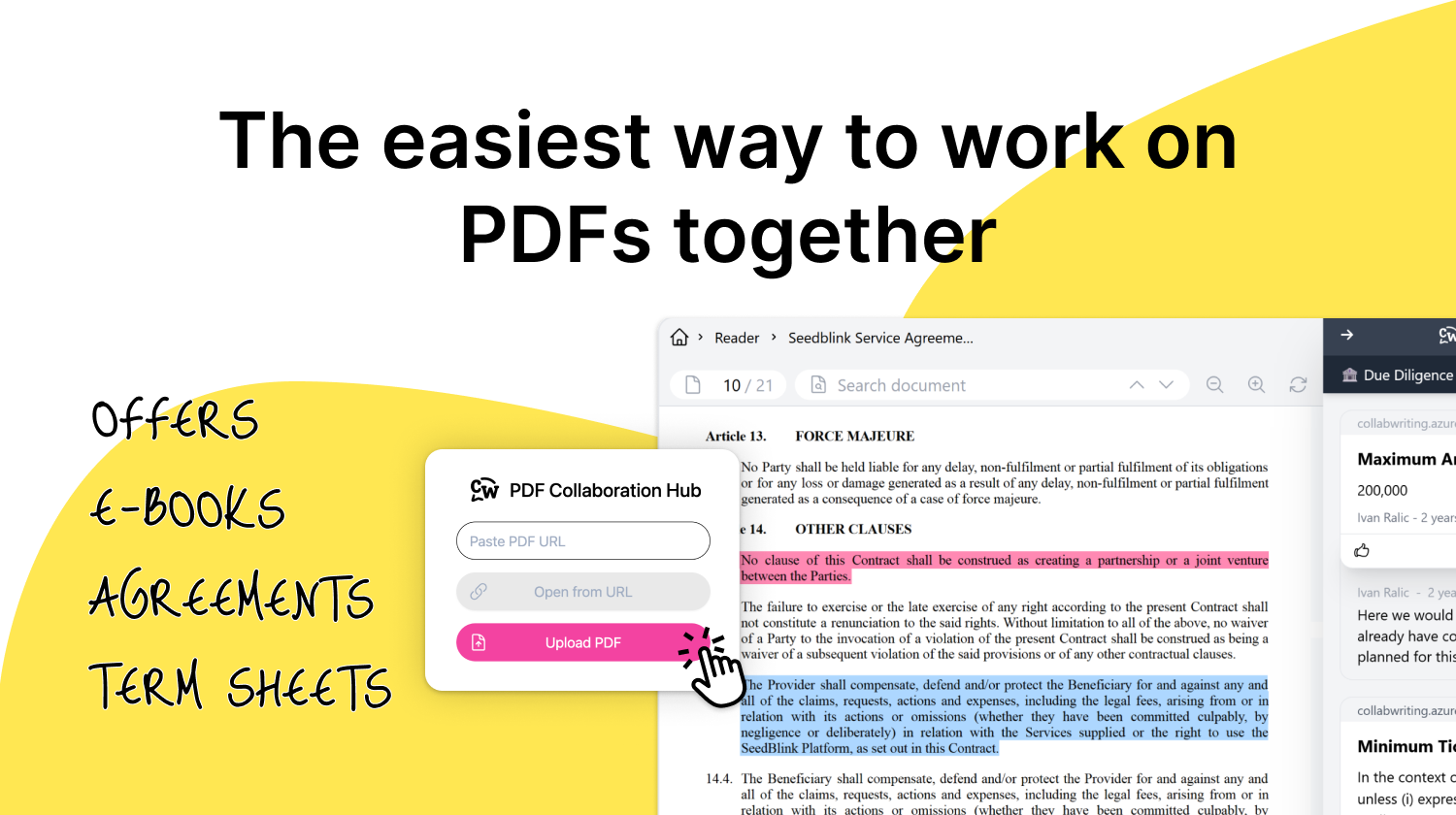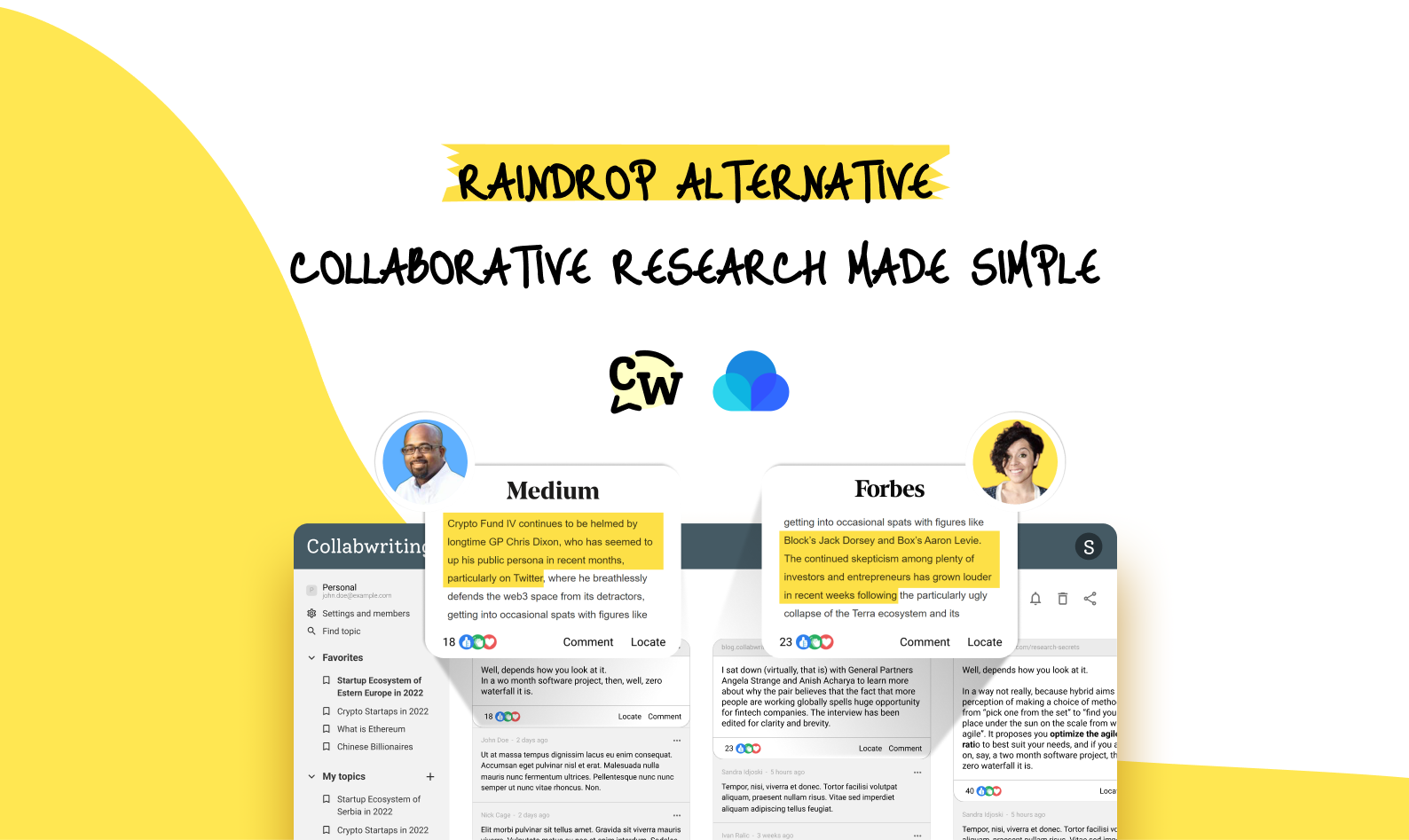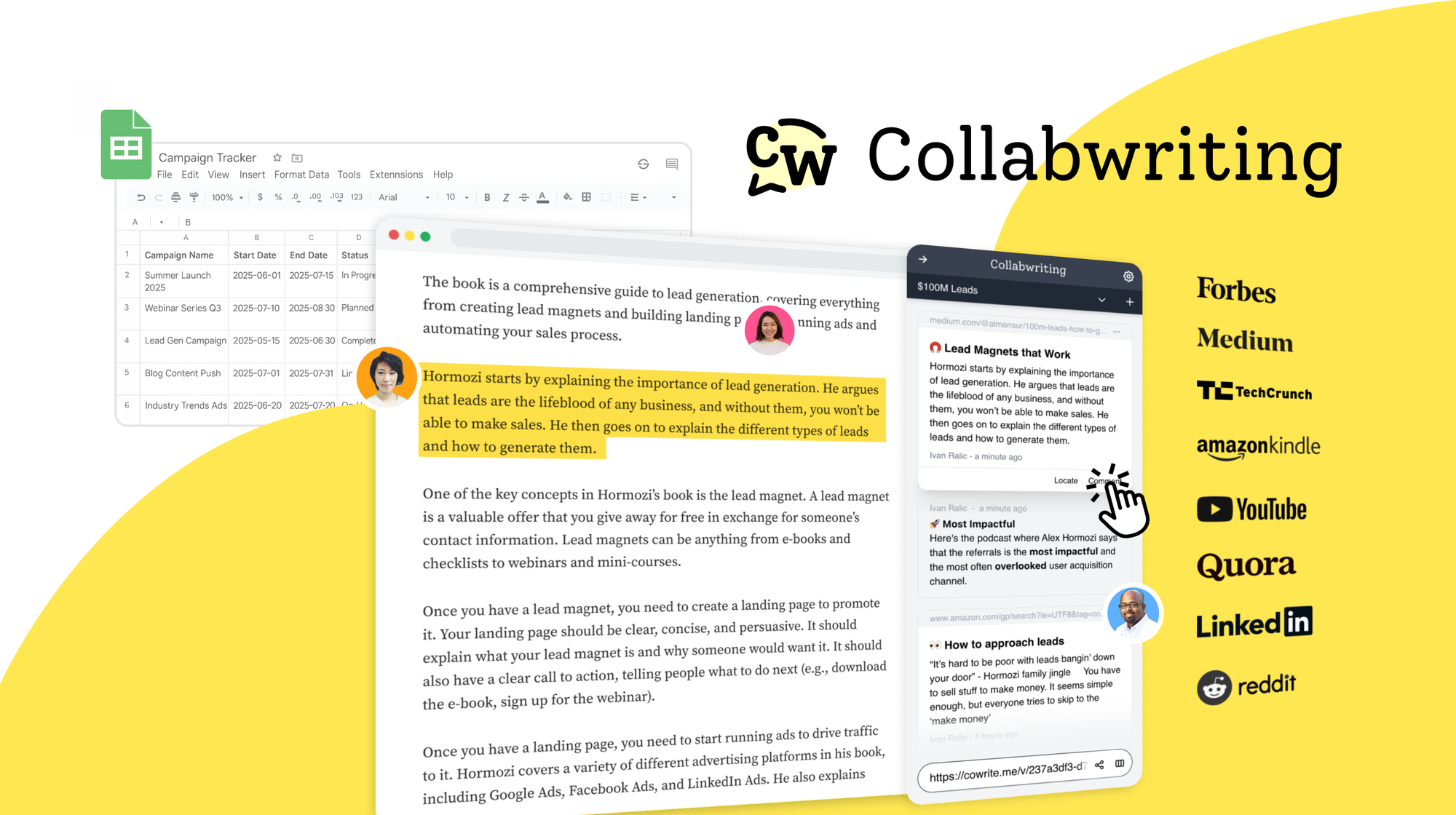No matter your role - marketer, consultant, lawyer, copywriter, or student - staying ahead depends on how well you manage research.
Collecting sources, taking notes, and collaborating with your team can get messy fast.
A research management system keeps everything organized, tracked, and easy to share, so you can focus on insights that matter.
Why You Need a Research Management System
A research management system is more than just a tool - it’s the backbone of organized, efficient, and impactful research.
Here’s why it’s essential:
Centralizes Your Research
- All your notes, highlights, and sources are stored in one place. You can quickly find and reference past research without wasting time searching.
Saves Time and Boosts Efficiency
- Automated organization of resources and notes lets you spend less time managing data and more time analyzing insights.
Improves Collaboration
- Teams can leave comments, share highlights, and track contributions in real time. Everyone stays aligned, no matter the project or location.
Creates a Living Knowledge Base
- With features like tagging, clustering, and version control, your research evolves into a dynamic resource that grows with every project.
Supports Better Decision-Making
- Easily accessible and well-organized research allows for faster, smarter decisions and actionable insights.
Integrates With Your Existing Tools
- Some systems connect seamlessly with platforms like Google Docs, Notion, YouTube, Gmail, and Slack, keeping your workflow smooth and eliminating duplicate work.
- Lack of a clear plan
- Without clear goals and deadlines, it’s easy to lose focus.
- Getting lost in online resources and struggling to organize them
- The internet is full of information, but not all of it is useful.
- Scattered communication across various platforms
- Messages across emails, Slack, and notes make collaboration hard.
- Difficulty tracking progress
- Especially in teams, it’s challenging to know what everyone has contributed.
If any of these sound familiar, it might be time to explore a research management system to help you streamline your process, improve team collaboration and keep everything organized.
Common Challenges During the Research Process
Managing all the details of your research projects can be overwhelming without a solid system in place.
You might run into common challenges like:
Lack of a clear plan
- Without clear goals and deadlines, it’s easy to lose focus.
This way, you know exactly what you need to do next and can avoid getting sidetracked by unrelated information.
Getting lost in online resources and struggling to organize them
- The internet is full of information, but not all of it is useful.
Scattered communication across various platforms
- Messages across emails, Slack, and notes make collaboration hard.
Difficulty tracking progress
- Especially in teams, it’s challenging to know what everyone has contributed.
Recognizing and addressing these issues early on can help you stay on track.

Collabwriting - Shareable Notes on Web Pages
Collabwriting allows you to gather all your online sources in one place.
Just highlight, save, and collaborate with anyone on any content you find online.
No more endless scrolling, no more lost insights, just simple, structured knowledge at your fingertips.
What’s Research Management?
Research management is the process of planning, organizing, and tracking research projects efficiently. It involves:
- Gathering and organizing data
- Allocating resources
- Tracking progress and results
- Collaborating effectively
All of these steps help you stay on top of your work, collaborate effectively with others, and ensure that your research is both efficient and impactful.

Research Management System - Key Features
A good research management system does more than store data - it turns your research into a living, growing knowledge base.
Most systems focus only on storing data, but what if your research could grow and improve as your team interacts with it?
Think of a system where your research becomes more than just a static collection of facts. It becomes a dynamic resource that grows with your team’s input - adding context, improving ideas, and linking different pieces of information.
This way, your research isn’t just a one-time project but an ongoing journey that continuously builds value.
Such a system helps you manage current projects while also creating a lasting knowledge base that’s easy to access, update, and reuse in the future.
However, when it comes to features and functions, it's essential to focus on what can truly improve your workflow and meet your specific needs.
Some of them include:
Content Capture
Look for tools that allow you to capture and highlight information directly from the web, PDFs, or other online sources, making it simple to collect relevant data and share it with your team instantly.
Data Management
When managing your research, start by gathering all your data and notes in one place. Organize information by sorting and categorizing it, so you can easily find and use what you need.
Finally, ensure your research materials are stored securely and remain accessible whenever you need them.
Tagging and Clustering
With tags and clusters, you can create connections between related pieces of information. This not only makes it easier to retrieve what you need but also helps you see patterns and insights that might not be obvious at first glance.
Version Control
With version control, you can keep track of all the changes and save different versions of your work. This way, you’ll never lose anything, and you can easily look back at earlier versions or see how your research has grown over time.
Collaboration
For effective communication, pick tools that offer comment features, so you can easily stay in touch and work with your team.
This should also apply to documents like PDFs, ensuring everyone is aligned and informed.
Integration
Opt for tools that connect with platforms like Google Docs, LinkedIn, Youtube, Notion, Gmail, and Outlook. This will provide you with more options for collaboration and sharing knowledge seamlessly.
Easy to Use
While every tool comes with a learning curve, a customizable interface helps you get up to speed quickly.
Creating a list of these features can help you spot areas for improvement and decide what you really need in your project management tool.
Why do I Need a Research Management System in my Team?
A research management system helps keep your projects organized and on track.
By centralizing research, these systems allow you to:
- Keep projects organized
- Reduce duplicated work
- Improve team collaboration
- Create a reusable knowledge repository
This means you can spend more time turning data into insights, instead of searching for scattered information.
Why Collabwriting is a Great Choice
Collabwriting includes all essential features:
- Content capture from web pages, PDFs, and videos
- Tagging, clustering, and version control
- Real-time collaboration with comments and permissions
- Integrations with Google Docs, Notion, YouTube, Gmail, and Slack
- Interactive, easy-to-use interface
It’s a budget-friendly solution and you'll get everything you need for managing research along with various tools to make your work and life more efficient.
Try Collabwriting now in this interactive video ⬇️
FAQ
Why is effective online research important?
It helps you gather, organize, and use information efficiently to stay ahead in your field.
What are some common challenges during the research process?
Common challenges include:
- Not having a clear plan
- Getting lost in online resources
- Communication spread across different platforms
- Struggling to monitor research progress
How can I avoid getting lost in online resources?
Create a clear plan to stay focused, and use tools like Collabwriting to highlight, save, and organize key information from your sources.
How can I monitor research progress effectively?
Assign clear roles, track updates, and use collaboration tools to monitor contributions. Collabwriting’s collaboration features allow you to manage permissions and monitor contributions easily.
What is research management?
Research management involves planning tasks, gathering data, managing resources, and tracking progress. It helps keep your research organized, efficient, and impactful.
What are essential features of a research management system?
- Content capture from web and PDFs
- Data management to organize and store information securely
- Tagging and clustering to connect related information
- Version control to track changes and save different versions
- Collaboration tools for communication and teamwork
- Integration with platforms like Google Docs, LinkedIn, and Notion
- Easy-to-use interface for quick learning and customization
Why do I need a research management system?
A research management system helps centralize your research, allocate resources, and manage data all in one place. It keeps your projects organized and on track, making your work more efficient.
What makes Collabwriting a good choice for research management?
Collabwriting offers all the essential features for managing research, including content capture, data management, collaboration, and integration with other platforms. It's also budget-friendly and designed to streamline your research process.





![The Best Tool for Collaborative Research in Content Marketing Teams [2026]](/content/images/2025/12/image--5-.png)

![5 Tools Marketers Use to Organize Research - Compared [2026]](/content/images/2025/11/cover-4-1.png)

![Build Credibility in Research: Smart Way to Verify Information and Track Sources Easily [2025]](/content/images/2025/10/covers-for-blog--7--1.png)

![How Marketers Can Turn LinkedIn Content into Collaborative Research [2025]](/content/images/2025/10/covers-for-blog--8-.png)
![Best Readwise Alternative for Personal & Team Research [2026]](/content/images/2025/09/Frame-814--3-.png)

